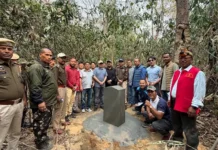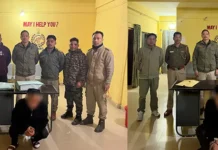Flights Of Fantasy
[ M Panging Pao ]
Recently we lost one of the architects of modern India in the form of Ratan Tata, who breathed his last at the age of 86 years. Ratan Tata was a true leader, philanthropist, philosopher and friend of India.
Ratan Tata was born in Mumbai on 28 December, 1937, to Naval and Soonoo Tata. After his initial studies in Mumbai and Shimla, he graduated from Cornell University, New York, USA. He joined the Tata group in the 1970s and worked in various posts. In 1991, JRD Tata stepped down as chairman and named Ratan Tata as chairman of Tata sons. During the 21 years that Ratan Tata led the Tata Group, revenue grew 40 times and profit 50 times. During his leadership the Tata Group became an international brand acquiring brands like Jaguar Land Rover, Corus, Tetley, etc.
Today Tata is a common brand name known to most people of India and the world. Tata has become a part of our families and daily lives. Iconic Tata brands include Tata Tea, Tata coffee, Tata salt, Himalayan mineral water, Tata trucks and vehicles, Tata Sky/Play, Chroma, West Side, Taj Hotels, etc. Initially founded by JRD Tata, recently the Tata Group took over Air India/Indian Airlines and subsidiaries like Air Asia, Vistara, etc.
Despite building one of the richest business empires worth thousands of billions, the Tata house stands out in terms of contributions to social services and philanthropic work for the common people. The Tata Group alone contributes about Rs 1,000 crores annually on corporate social responsibility (CSR) projects in India, impacting the lives of crores of common people. The major focus areas of the Tata Group include education, health & hygiene, skill building, livelihood generation, and Water. These focus areas would help in addressing key social challenges to enable sustainable development.
The Tata Group’s major social initiatives include the Maternal and Newborn Survival Initiative (MANSI), the Digital Nerve Centre (DiNC), the Tata Cancer Hospitals across the country, the Tata Institute of Social Sciences, the Tata Football Academy, etc. Recently, Tata Trusts and the government of Assam have started a joint initiative to establish a network of 19 cancer hospitals in Assam – the largest cancer care network in South Asia, many of which are already operational.
Recently, the Tata Group agreed in principle to set up two cancer specialty centres in Arunachal Pradesh also.
Ratan Tata never married and had no children. He was a great human being and an ardent dog lover. He was awarded with the Padma Bhushan in 2000 and the Padma Vibhushan in 2008. He was also awarded numerous international awards and was on the boards of director of many companies in India and abroad.
Ratan Tata should rank as one of the greatest Indians. There are few personalities who are at par with Ratan Tata; maybe Dr APJ Abdul Kalam, Swami Vivekananda, and Field Marshal Sam Manekshaw. The irony is that in this exclusive list there are no politicians. Let’s offer our humble tribute to one of the greatest Indians. Tata, Ratan Tata. (The contributor is retired Group Captain, Indian Air Force)


